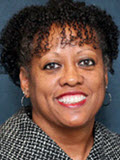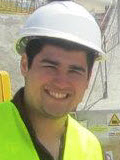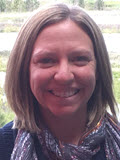Imagine you could go back in time and meet yourself at 22 years old.
What would you say to your younger self?
What career advice would you offer, given all you’ve learned since?
What nuggets of civil engineering wisdom would you bestow?
We asked our members. Here’s what they said:


Jaffer Almosawy
Jaffer Almosawy, EI, ENV SP, A.M.ASCE, Engineering Intern I – GCW Inc. – Las Vegas, NV:
“Be assertive, take initiative, and never be afraid to ask questions – especially when you are stuck on a project. Just because you’ve earned that degree does not mean you know it all. Soak up as much information as you can and keep asking your supervisors questions, especially while you are still young in your career.
“Also, don’t be afraid to ask for something you want too. If you find yourself not happy with what you are doing, your supervisor may be able to help provide whatever it is you need or try to place you somewhere more fitting for your goals.”


Kim Parker Brown
Kim Parker Brown, P.E., M.ASCE, Environmental Restoration Technology Program Manager, Naval Facilities Engineering Command Headquarters – Washington, DC:
“Do not be reluctant to find a mentor who truly has your best interests in mind to help you reach your aspirations. The mentor can come from within the company where you work or within an organization that is related to your profession. Just be proactive about finding one and don’t wait for the person to find you, since you indeed are the controller of your own destiny.
“Do your research and seek someone who is well-respected and knows the intricacies of the organization. Also, make sure you show the person what your goals are, so that he or she can feel inspired to have you as a mentee.”


Fernando Ceballos
Fernando Ceballos, EIT, A.M.ASCE, Civil Engineer III, Pape-Dawson Engineers – Plano, TX:
“Find a group of mentors for the different areas of your life. Understand that these relationships are a two-way street, and that you’ll only see the benefits of mentorship once you develop trust between the two of you. You aren’t seeking a roadmap for your future, but simply asking for the perspective of people who have been in your shoes.”

Mary Jo Cleland
Mary Jo Cleland, P.E., M.ASCE, Project Manager, ZMM – Charleston, WV:
“I would tell myself to set a long-term career goal. After graduating from the U.S. Naval Academy, I cross-commissioned and served the next four years in the Air Force. I worked hard as a project engineer and had the opportunity to travel around the world, but I did not have a long-term vision for my career when I got out of the Air Force.
“I would definitely tell my 22-year-old self to invest time in thinking through a career path. Most likely, my career path would have still taken twists and turns as life happens, but with a long-term vision the path may have been a little less winding.”

Laura Farthing
Laura Farthing, P.E., M.ASCE, Senior Engineer, Eugene (OR) Water & Electric Board:
“I would tell myself that my 20s are really short, and I will never have as much time for fun as I did then.
“I would tell myself to do more fun things, maximize time off, travel as much as possible, check items off my bucket list.”


Paul Giroux
Paul Giroux, Dist.M.ASCE, Senior Engineer, Kiewit Bridge and Marine – Vancouver, WA:
“Every day is an opportunity to learn more, to achieve more, and to share more. Seek knowledge, push yourself out of your comfort zone, and give back.
“Seize the day.”

Jesse T. Gormley
Jesse T. Gormley, P.E., ENV SP, M.ASCE, Staff Engineer II, Pennoni – Philadelphia, PA:
“I would tell my 22-year-old self two things. First, you learned a lot in school but you don’t know everything … and that’s OK! Ask questions, keep expanding your knowledge base, and be open to feedback. Second, tough as it may seem, start networking now. Even if it’s just meeting fellow graduates, not only will the process get easier but those early connections will blossom over time.”

Jane Horvath
Jane Horvath, P.E., ENV SP, M.ASCE, Engineer, Mott MacDonald – Los Angeles, CA:
“Learn how to network effectively and maintain the important relationships. This doesn’t mean collecting business cards or seeking out the highest-ranking person in every room.
“The most meaningful and fruitful connections are the ones based on genuine friendships.”


Taka Kimura
Taka Kimura, P.E., F.SEI, M.ASCE, Lead Bridge Engineer, CH2M – Honolulu, HI:
“Don’t just concentrate on salaries when choosing your first job. It’s more important to look for jobs that will provide good training and experience to build up your skills. Graduation marks the end of your formal education, but also marks the beginning of your training as an engineer.”


Tim Lamkin Jr.
Tim Lamkin Jr., P.E., M.ASCE, Senior Transportation Engineer, Bolton & Menk – Minneapolis, MN:
“I’d offer three pieces of advice. First, make sure your experience as an EIT is diverse, learn as much as you can in your technical field. This will be invaluable as you study for the P.E. exam and advance in your career. Second, don’t forget about communication skills. Take every opportunity to speak in front of people to help hone those skills. You will find that effective communication will be your most valuable skill. Third, get involved in a professional society (like ASCE!). It’s a great place to build valuable relationships, which will help you and your employer, all while advancing our profession.”

Marilisa Stigliano
Marilisa Stigliano, A.M.ASCE, Project Controls Manager, AECOM – New York City:
“I would say to approach the job search and the work itself with curiosity. Find people who can satisfy your curiosity, from school professors to work professionals. Follow your interests and find all jobs that may align with them. In your own company, learn who are all the players and their role in a project or in the company itself. Find a dynamic supervisor, take responsibilities when others don’t, get to know as many people as you can, and find a group of people that you trust.”

Richard N. Wright
Richard N. Wright, NAE, Dist.M.ASCE, retired director of the Building and Fire Research Laboratory of the National Institute of Standards and Technology:
“My advice is to have a career plan, implement it, and update it when unexpected opportunities arise.
“In 1955, as I was completing my studies for a master’s degree in civil engineering, I decided to go on active duty as an enlisted man in the U.S. Army Corps of Engineers. My reasoning was, at this time of the Korean War, I did not want to limit my career choices to those providing a draft deferment. So, I should serve the required two years on active duty and then have complete freedom in job seeking.
“After basic training, I was assigned to teach at the Engineer School at Fort Belvoir, VA. Three young officers there, for whom I worked, had recently completed master’s degrees at the University of Illinois and recommended that I study computer methods in engineering and structural dynamics. Moreover, they recommended me so strongly to Dr. Nathan Newmark, the distinguished department head, that he offered me an appointment as an instructor with the provision that I successfully pursue Ph.D. studies.
“I accepted this unexpected opportunity, which led to meeting my future wife at a graduate student mixer, fascinating research on nuclear weapons effects on structures, the Ph.D., a tenure-track appointment as assistant professor and subsequent promotions to associate and full professor.”



My advice to my younger version of me will be immediately join the ASCE community, pursue a higher degree of education (master’s degree like I’m doing at this moment), be more active in civil engineering continuing education and explore a wider scope of project management. Don’t let the day without learning “something” that will add up to your knowledge and skills and share it to your peers.
My advice to my 22-year-old-self would be:
“Don’t listen to your 62-year-old self. He means well, but he’s too focused on retirement right now and would just screw your life up worse than you would do on your own. Just take a deep breath and enjoy the ride.”
With today’s computer and communications technology you are lucky, but after a break overall recheck your work which you have done on your confidence. Good Luck.
I know many will think I am just being cheeky, but really, go to law school. Only gig where you create work for yourself and when you’re done you can challenge what you created to create more work for yourself. Then when you’re old, you can sell yourself as an expert on all of the stuff you created for yourself. After all, it’s all only your opinion. Sweet!
Many of us are living today with the decision a teenager made. Change horses if the one you are riding is not taking you where you want to go.
Pay more attention to, and care more about, people. You never know who is going to be your boss! And those you offend will tell someone. Get along, and get ahead.
Remember, today is the first day of the rest of your life. What are you going to do with it?
Go get that master’s degree. No exception. I was lucky to be able to do get into design work for the first couple years of my career when I graduated in 2006, but ever since the great real estate crash of 2008 found the rest of my career drifting between bottom-of-barrel positions in bridge inspection and government (both working in and consulting for). Similarly, all a bachelor’s degree will qualify you for these days are positions in construction management, roof inspection, and other quasi-engineering roles that do not get you too far in your career (unless you enjoy those types of jobs). Even if you do get a job after your bachelor’s, immediately make plans to study for your master’s degree, either part-time or full-time after several years of working.
Networking is a great idea, but keep in mind that the bright engineer or successful manager you may have met over a happy hour may not often be the one with the power to hire you, and after the small talk and ideas go aside, are seriously judging you on your actual qualifications rather than your personality or “work style”.
Great article, useful AND interesting. I have the honor of knowing two of the celebrities in the article. One more item is to be involved in your industry and community, Jaffer and Paul both give back to the community and impact so many.